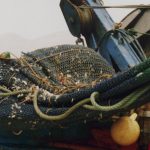According to experts Papua New Guinea, the Solomon Islands and six other Pacific nations recently prohibited Philippine fishing boats from a portion of the ocean reportedly the size of Alaska. It is said that the ban on two areas of the Pacific Commons, stretches of international waters surrounded by coastal waters belonging to the Pacific nations, aims to conserve bigeye and yellowfin tuna stocks. Stanley N. Swerdloff, senior fisheries adviser of the Growth with Equity in Mindanao, told that the effect of the ban by the Pacific nations to the country’s tuna industry would be very less.
He explained that there will be small impact as only a few Philippine vessels are fishing in the international waters of those nations. He also added that most of the Philippine fishing fleets are licensed to catch in these countries’ exclusive economic zones (EZZs), and these are where heavy Philippine fishing expedition has been occurring. According to him Filipino-owned vessels are fishing tuna stocks in international waters close to the Philippines, which is outside the area banned by the Pacific nations.
Dexter T. Teng, president of the South Cotabato Purse Seiners Association (Socopa), echoed that the ban in the portions of Pacific Commons has little impact to country’s tuna industry. He expressed that traditionally, Filipino fishing boats catch stocks in the EEZs so the ban on international waters by the Pacific nations will not have much impact to our tuna industry.
It is said that the closure of the international waters straddling the Pacific nations to tuna boats would hit hard Taiwanese and Japanese fishing firms. The Pacific nations unified to exclude the international waters from tuna fishing operations after the Western and Central Pacific Fisheries Commission failed to come up with regulations during a meeting in December.








